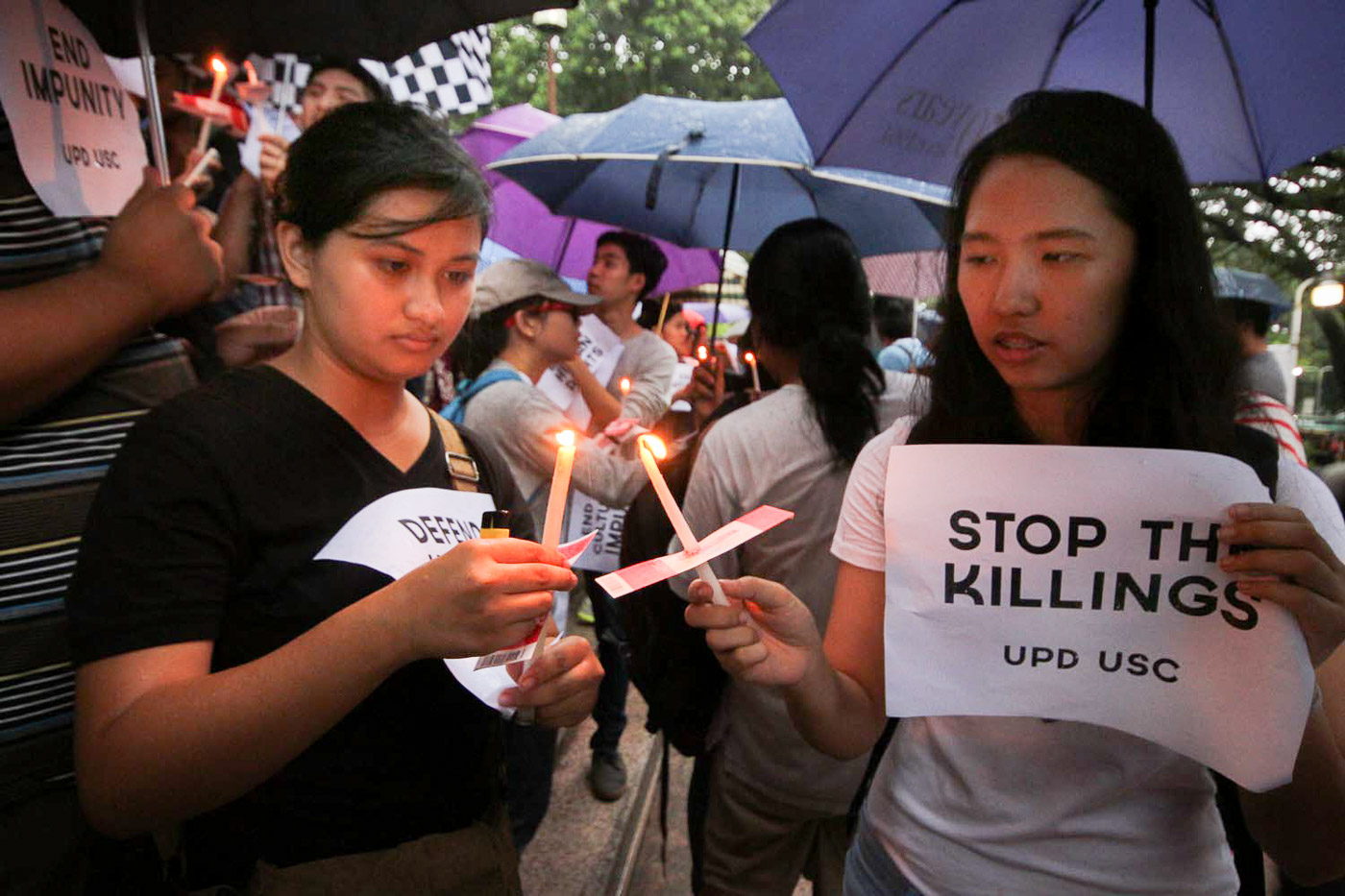SUMMARY
This is AI generated summarization, which may have errors. For context, always refer to the full article.


MANILA, Philippines – A new law presents a new definition for extrajudicial killings (EJKs), especially when it comes to children in armed conflict situations.
Section 5 of the law, Special Protection of Children in Situations of Armed Conflict (Republic Act No 11188), defines EJKs as follows:
“Extrajudicial killings refer to all acts and omissions of State actors that constitute violation of the general recognition of the right to life embodied in the Universal Declaration of Human Rights, the United Nations Covenant on Civil and Political Rights, the UNCRC and similar other human rights treaties to which the Philippines is a state party.”
The law was signed on January 10 but was only sent to media on Tuesday, February 19.
The law’s EJK definition is different from that found in Administrative Order 35 which the PNP has used in the past as basis to say there were technically no EJK cases under the administration at the time.
AO 35, issued during the administration of Benigno Aquino III, defines EJKs as committed by “state and non-state forces” to silence, “through violence and intimidation, legitimate dissent and opposition raised by members of the civil society, cause-oriented groups, political movements, people’s and non-governmental organizations, and by ordinary citizens.”
They had pointed to this definition to say that there were zero EJK cases from July 1, 2016 to September 30, 2017. Former foreign secretary Alan Peter Cayetano had also referred to this definition when he appeared before the United Nations Human Rights Council in May 2017. He had used this definition to say there was no “new wave” of killings under the Duterte presidency.
This is because AO 35 appears to limit EJKs to those perpetrated against people who express dissent or opposition against government. The older definition also states that both government and non-government forces can commit EJKs.
What does this mean? Lawyer Theodore Te says the EJK definition is preceded by the phrase “As used in this Act,” which means “the definition appears to be limited to this law.”
But the real potential impact of the definition is how it applies to cases of minors being killed in conflict situations, including the administration’s campaign against illegal drugs, which the government says it is waging against armed syndicates.
“Now we can actually say henceforth when a covered minor is killed, there are now EJKs,” he told Rappler.
But the new definition is not retroactive, meaning it cannot be used for cases of killings of minors before the law was enacted.
This new definition in RA 11188 is different from the AO 35 definition in crucial ways.
One major difference is that it specifically states that EJKs are committed by state actors, meaning the government.
EJKs now include any violation of the right to life, based on international definitions like the Universal Declaration of Human Rights. – Rappler.com
Add a comment
How does this make you feel?
There are no comments yet. Add your comment to start the conversation.